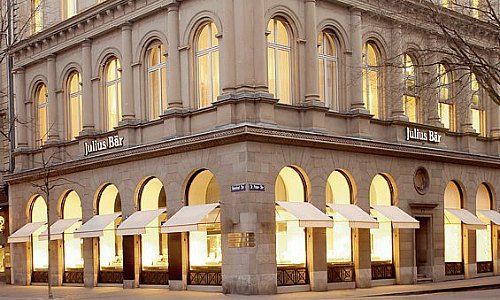

Steady as she goesĪcknowledging the challenges evident at the outset of a fresh decade, Julius Baer presented an update and refinement of its strategy for the medium and longer term at the beginning of 2020. This growth enabled the Group to further strengthen its leading position in a highly competitive industry, to provide clients with an unparalleled product and services offering, and to tackle any future challenges from a position of strength as the international reference in wealth management. IWM provided a rare opportunity to substantially increase the Group’s footprint in established markets, new markets, and in growth regions. In August 2012, Julius Baer initiated the next phase of its growth by acquiring Merrill Lynch’s International Wealth Management (IWM) business outside the US. and began systematically broadening its international presence and specialised offering via acquisitions and a number of strategic cooperation agreements around the globe. The wealth management business became the independent Julius Baer Group Ltd. By separating the Group’s asset management and private client businesses in October 2009, each individual business was provided with precious strategic flexibility in the early stage of this new cycle.

The 2008 credit crisis ushered in a fundamentally changed business environment, leading Julius Baer to take a rather unorthodox step. Exploiting this massively increased scale, Julius Baer started expanding rapidly into global growth markets, particularly Asia, and achieved strong growth momentum in the years that followed. This new financial leeway was utilised in the same year for the acquisition of three private banks and a specialised asset manager, which together were even larger in size than Julius Baer itself. This only changed at the beginning of 2005 with the introduction of the ’one share, one vote’ principle.
#Julius baer full
The majority of the voting rights from the initial public offering remained within the Baer family pool, thus ensuring full control of the Group. The need to finance this rapid growth drove Julius Baer to become the first Swiss private bank to go public in 1980. Parallel to the strong economic growth and technological progress after World War II, the company – then a partnership comprising of an increasing number of Baer family members – began expanding internationally in 1940 and thus laid the first building blocks of today’s global business. What initially started as a small bureau de change rapidly expanded into a wealth management, securities and FX trading company – business activities that remain at the core of the Julius Baer Group until today. The investment by SIX, which launched a prototype of its SIX Digital Exchange (SDX), consolidated two separate efforts in the country.Recognising the importance of Zurich as a centre for international trade, Julius Baer, founder and namesake of the Group, opened shop on Zurich’s famous Bahnhofstrasse in the 1890s. Until then, Swisscom was working with Deutsche Börse for digital assets. Last month, Swiss Stock Exchange owner SIX, along with Sygnum, announced an investment in SME share registry and tokenization firm daura, a unit of Swisscom. The bank has a close association with Swisscom. At roughly the same time as SEBA, another startup crypto bank Sygnum also received a FINMA license. Meanwhile, there is a flurry of digital asset activity in Switzerland. Recent reports suggest SEBA is aiming to raise another $100 million soon. Julius Baer has a minority stake in the startup. Shortly after, it raised $100 million to build a licensed bank and securities dealer. Zug-based SEBA was founded in April 2018. SEBA now offers services like crypto and digital asset custody, trading and liquidity, transaction banking, crypto asset and wealth management, and crypto corporate finance.
#Julius baer license
Back then, SEBA was still in its infancy, but it later received a FINMA banking and securities dealer license in August 2019. The private bank and the crypto bank first announced a collaboration in early 2019. It has $379 billion in assets under management. Julius Baer is the number 3 private bank in Switzerland, after UBS and Credit Suisse, and 7th worldwide as of 2019. Customers also get a consolidated overview of their portfolio across both conventional and digital assets. After forming a partnership last year, this week Julius Baer announced that a range of digital asset services is now available to clients.īy collaborating with SEBA, Julius Baer is offering its clients access to a select group of cryptocurrencies, crypto storage, and transaction solutions. Switzerland’s Julius Baer and SEBA Bank have been working together to offer digital assets services to the former’s customers in the country.


 0 kommentar(er)
0 kommentar(er)
